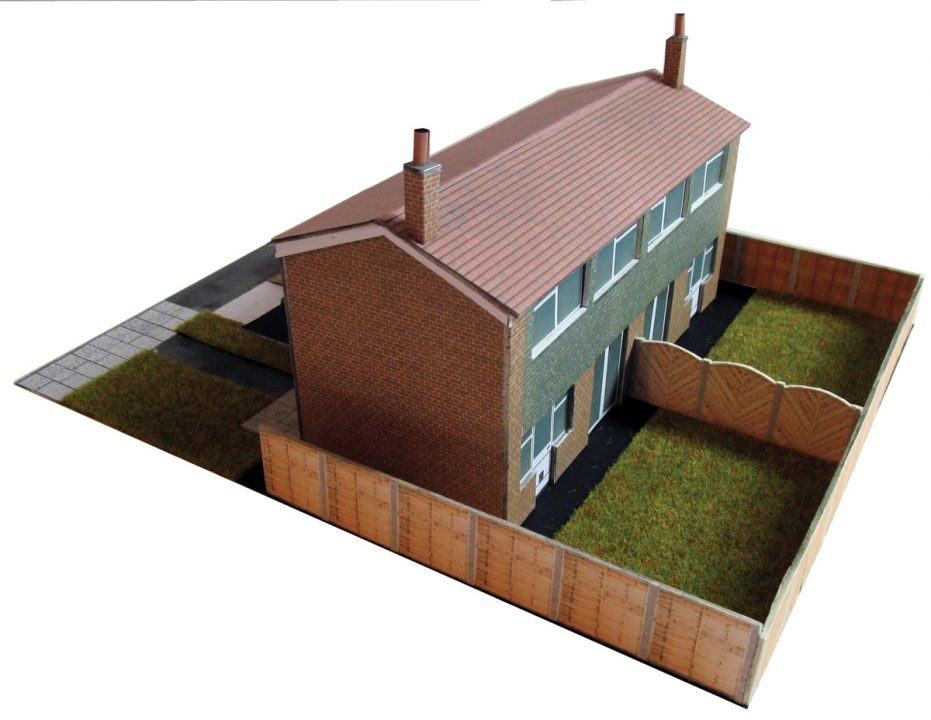
Progress towards Rebuilding Ireland
19th July 2017
Learning from our challenges?
19th July 2017Cover story – Just another form of housing

Brian O’Gorman, CEO of Clúid Housing, talks to Owen McQuade about the need to see social housing as just another form of housing and the housing association’s plans to deliver 2,500 new homes over three years.
Brian O’Gorman was Clúid Housing’s first employee and is now its CEO. The largest housing association in Ireland, Clúid was established over 20 years ago in 1994 by St Pancras Housing Association, which was based in North London. Michael Smith, the Minister responsible for housing in the mid-1990s, went over to the UK to encourage housing associations to come and set up in Ireland. St Pancras was a long-established community housing association set up just after the First World War to provide homes for returning service men and their families as it was thought no longer acceptable for them to go back to the slums they had been living in before the war. “We adopted much of their ethos and values. We’re still very much a social business and are committed to an entrepreneurial approach. For us, it’s also about housing being a professional service,” explains O’Gorman.
“Housing requires a lasting, 60 to 70 year commitment to the asset. It’s very much a long-term perspective,” he adds. When Clúid was established the property market was just beginning to turn and a lot of investment was being put into social housing and the housing economy was starting to take off. “We benefitted from the positive economic outlook at that time.” Since 1994 Clúid has grown into Ireland’s largest housing association providing over 6,000 homes across the country.
We have a core belief that social housing is an indispensable component of a properly functioning housing economy.

Just housing
A strategic aim of Clúid is to establish the concept of ‘just housing’. O’Gorman explains: “Social housing should be thought of as just another form of housing – it’s not welfare housing; it’s not housing of last resort.”
The objective is to remove any stigma associated with social housing and to address what he says is the “anecdotal image of someone giving a relative’s address so they are not pinpointed in a social housing estate that might affect their chances of employment or education. It’s about normalising social housing as just another form of housing. We have a core belief that social housing is an indispensable component of a properly functioning housing economy.”
A similar concept Clúid is keen to promote is the idea of ‘first choice’. “People who come into our housing are usually nominated by the local authority, they don’t have a huge amount of choice. However, we aim to involve them in choices whenever we can in terms of repairs or colour schemes etc.,” says O’Gorman.
Another aspect of Clúid’s ‘first choice’ approach is that the organisation recognises the fact that developers have commitments to work with housing associations under ‘Part V’ (which states that 10 per cent of new housing developments must be reserved for social housing). Clúid aspires to be the partner of choice to both developers and local authorities: “we want them to see us as a property manager who is not going to negatively affect their sales and has high standards of property management. We want them to choose us as their partners because they can be sure of a quality product.”
Clúid is now the largest housing association in Ireland. This growth has been continuous over the 20 plus years since the housing association was established. O’Gorman puts this down to working with excellent partners in the private sector and continually developing strong working relationships with local authorities. He says that Clúid prides itself on being easy to work with and good to do business with: “So we do a lot of repeat business.”
O’Gorman has been involved with housing throughout his career and when asked, how has the business changed over the years, he notes a significant change in the way social housing is now funded. “After 2008, with the collapse of the property market there was a fundamental change in how we funded our development. Between 2008 and 2016 most of the new developments were acquired properties because we couldn’t build for the value that was available on the open market. We acquired most of our new stock at the time through acquisition. We are now back into construction,” he observes.
O’Gorman points to the construction work that surrounds Clúid’s office and to the cranes across Dublin’s skyline. He says construction is not only producing new homes as “with construction comes jobs.” There is clearly a wider economic benefit and the housing association is keen to see a wider social benefit to match. Clúid has included local labour clauses in its contracts “and developers have been happy to include these.”
Clúid is not only the largest housing association, it is widely recognised as being very well-run too. O’Gorman highlights its asset management programme: “One thing we have prioritised as a relatively new housing association – some housing associations like the Iveagh Trust have been around for over 100 years – is when we acquire or build a property it enters an asset management programme, whereby we invest regularly. It is extremely important we continue to invest in our stock. When someone leaves one of our properties there should be someone wanting to come into that property straight away. Times change but we need to keep one step ahead. When I started off in social housing, central heating was rare, whereas now it is the norm. We need to constantly invest to meet people’s changing needs.”
O’Gorman is also very aware of the sector’s responsibility to look after its assets and provide high-quality housing services. “Over the years we have received a significant amount of public funding and we see ourselves as stewards of that capital the State has invested in social housing. Therefore, it’s up to us to ensure that it is looked after.”
Clúid believes that the one thing missing in the housing jigsaw is the idea of an ‘affordable rental’ scheme. There is social rental, owner occupied and private rental but there is no offering for those who may not qualify for social housing but can’t afford market rental. O’Gorman sees this as a “huge unmet and untapped need and the absence of that is negatively affecting the whole housing economy.”
Secure and affordable social housing provides a platform for people to enhance their life chances.

Future outlook
At the end of 2016, Clúid’s board agreed a three-year business plan that will see the housing association develop 2,500 properties over that period, with an investment of around €500 million. “It is very ambitious but as there has been very little building activity for a number of years, there is a huge pent-up absence of supply and we can provide a material number of units to address that.
“Since the business plan has been approved we have worked hard to build the capacity of the organisation to deliver that programme over the next three years – this is at the top of the board’s agenda.”
Whilst acknowledging that the programme is ambitious, O’Gorman is quietly confident that Clúid will meet this challenge. In the first year there will be agreements with developers on design and build. What this means is that the developers come to Clúid and the housing association signs agreements to take a number of units once they are built. A lot of developers have had difficulty getting funding to commence works after the property crash. Partnering with Clúid and signing agreements for the completed units has enabled them to get finance. Clúid has also pioneered innovative procurement methods which enable them to pay stage payments while adhering to public procurement rules.
O’Gorman also points to the issue of land supply. “This has always been an issue for us. We don’t have access to any land bank ourselves, so we are reliant on private developers and on local authorities.”
However, he is optimistic: “The 2,500 units we will bring in over the next three years are all identified schemes. They are all in the pipeline at various stages of development.”
Reflecting on the changes in the housing sector, O’Gorman sees a restructuring of the sector in the coming years. There are over 200 housing associations in Ireland. This contrasts to only 35, larger, housing associations in Northern Ireland. “In the North, there has been a lot of collaboration and mergers and that needs to happen here too.” He also highlights a move towards more regulation and this year statutory regulation will come in to replace a voluntary regulatory code. He continues by pointing out the change in funding models. Up until 2008, Clúid would have designed and built housing using 100 per cent grant funding; since then the funding model has been based on debt finance. Now that the organisation is actually going out to lenders there is a whole new function required within the housing association. Clúid has had to greatly enhance its finance and legal capacities in order to deal with the increased governance and risk management functions.
In addition to delivering the investment programme of 2,500 new homes, O’Gorman would like to expand Clúid’s business. “We would like to build much more integrated developments, with affordable rental alongside social housing. We would like to do more housing that is more inclusive, for people with special needs and also migrant families, housing more people who are currently in direct provision. We would like our schemes to better reflect society in general, with people at different stages of the life cycle, to approximate what any thriving community looks like.”
Looking at the role of housing in the wider economy, social housing can act as an enabler to regenerate rundown areas, particularly in inner cities. Clúid has delivered such projects in Dublin, Longford and Ballina: “We have taken rundown estates that have been transferred to us by the local authority and we regenerated these and that has been a catalyst for other economic development in these places. There are many ways social housing can play its part in the general economy.”
On a more philosophical note, O’Gorman says: “There is a social pact with social housing. Taxpayers put money into social housing and it needs to be well managed and for people who are housed in social housing it should enhance their life chances. The core belief for us is that secure and affordable social housing provides a platform for people to enhance their life chances.”
 Profile: Brian O’Gorman
Profile: Brian O’Gorman
Born in Wolverhampton Brian moved to Limerick at 14 years of age. He studied philosophy at college and has a Masters degree in business from the IMI. He has always worked in the not-for-profit housing sector, starting with Threshold where he dealt with mortgage and rent arears and controlled tenancies. He then moved to the homeless charity Focus Ireland working in housing policy. Later, he studied housing management at Ulster University and joined Clúid as its first employee. “When you start any job you don’t think you will be there that long but what has always excited me about Clúid is that it constantly changes. It is always innovating and forming new partnerships which keeps us all fresh – that’s why I have never left.”
Interests outside work include hurling and camogie, which his daughters play and Brian also enjoys set dancing and traditional Irish music with his wife.





